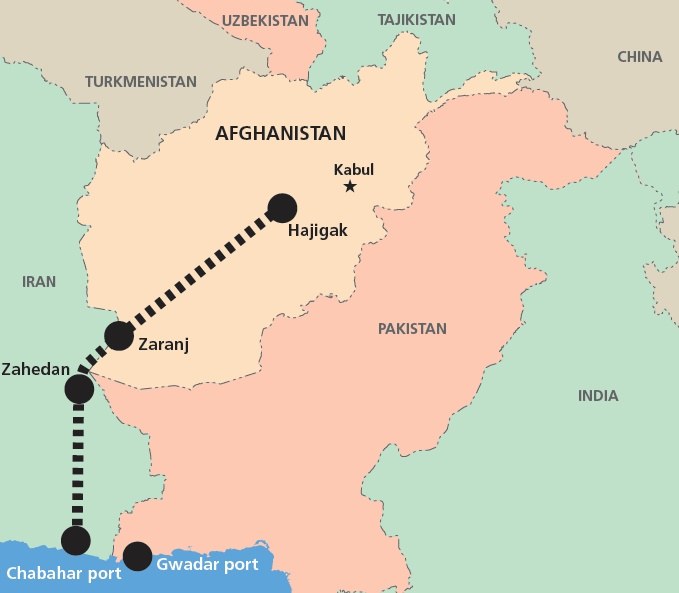UPSC Articles
INTERNATIONAL/ ECONOMY
Topic: General Studies 2 and 3:
- India and its neighborhood- relations.
- Effect of policies and politics of developed and developing countries on India’s interests.
Lost opportunity: On India losing Chabahar project
Context:
Iran decided to proceed with the Chabahar port rail project by itself citing funding delays from India side in beginning and funding the project
Do You Know?
- Chabahar port is located on the Gulf of Oman and is only 72 km away from the Gwadar port in Pakistan which has been developed by China.
- The distance between Kandla and the Chabahar port is less than the distance between New Delhi and Mumbai.
- The Chabahar port, signed in 2003, has been jointly developed by India, Iran, and Afghanistan.
- The government sent exports to Afghanistan in 2018, and has moved over half-a-million tonnes of cargo, including grains and food supplies, for Afghanistan again, through the port

Significance of Chabahar Port
- It gives a boost to India’s bilateral ties with Iran which is a major oil supplier for India.
- It will give India access to Afghanistan, Russia and Europe, thus circumventing Pakistan
- The port and the rail project (Chabahar to Zahedan to Zarang near Afghanistan border) will enhance connectivity, energy supplies and trade
- The port is also a key link in the International North South Transport Corridor (INSTC), a multi-modal network of ships, rail and road routes to move freight between India to Russia via Iran.
- It will facilitate India’s role in Afghanistan’s development through infrastructure and education projects.
Why the recent move by Iran is considered as setback for India?
- India and Iran had agreed to construct 628km rail line from Chabahar port to Zahedan, which will be extended to Zaranj across the border in Afghanistan.
- This rail line was considered by India as an alternate trade route to Afghanistan & Central Asia.
- The state-owned Indian Railways Construction Ltd. (IRCON) had signed a MoU with the Iranian Rail Ministry in 2016 and promised to provide all services, superstructure work and financing (around USD 1.6 billion).
- Iran’s latest action comes in the backdrop of Iran finalising a 25-year strategic partnership deal with China worth $400 billion, negotiated in secrecy.
Reasons for Iran’s actions
- Delay in Indian funding due to fear of US Sanctions: Despite several site visits by IRCON engineers and preparations by Iranian railways, India never began the work, worrying that it could attract sanctions by the USA.
- Hiccups in bilateral relations: India has already zeroed out its oil imports from Iran due to USA sanctions. Bilateral ties with Iran took a hit in February 2020 after the riots in Delhi drew condemnation from Iranian
- Difficulties in logistics procurement: The USA had provided a sanctions waiver for the Chabahar port and the rail line but it was difficult to find equipment suppliers and partners due to worries of being targeted by the USA
- Better Deal with China: The $400 billion deal includes Chinese involvement in Chabahar’s duty-free zone, an oil refinery nearby and possibly a larger role in Chabahar port.
- Growing Iran-China relationship: Iran proposed a tie-up between the Chinese-run Pakistani port at Gwadar and Chabahar in 2019 and offered interests to China in the Bandar-e-Jask port 350 km away from Chabahar, as well as in the Chabahar duty-free zone.
Conclusion
In a world where connectivity is seen as the new currency, India’s loss could well become China’s gain.
Connecting the dots
- String of Pearls Theory
- Belt & Road Initiative of China














